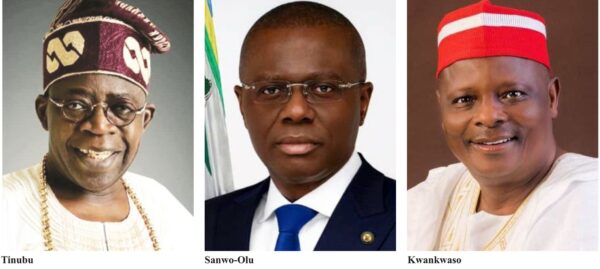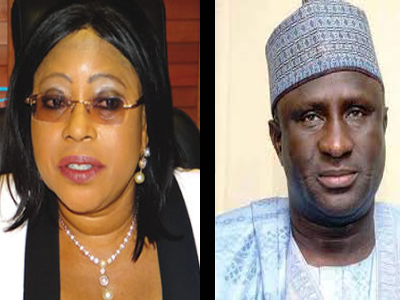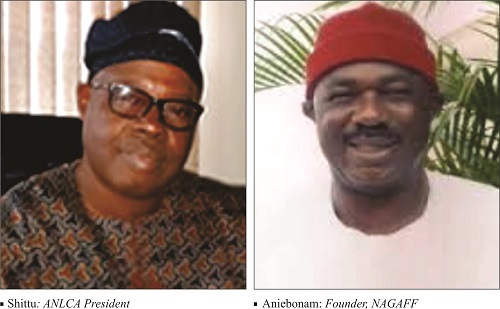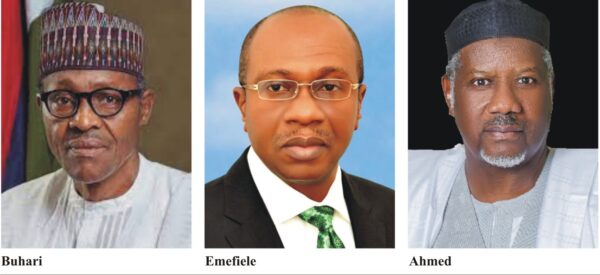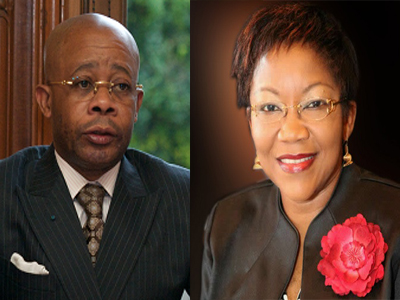National Carrier: Declining Local Will, Inspired Foreign Interest
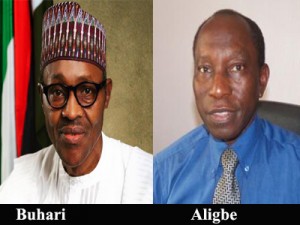 There is no doubt that Nigeria needs a national airline that can be identified with the country; that can be given the prerogative to carry out diplomatic and other duties for the nation and also to inherit critical air routes and airlift Nigerian passengers to international destinations.
There is no doubt that Nigeria needs a national airline that can be identified with the country; that can be given the prerogative to carry out diplomatic and other duties for the nation and also to inherit critical air routes and airlift Nigerian passengers to international destinations.
It is believed that such airline could renew the platform for manpower training, together with other indigenous carriers wrest some of the international passenger traffic from foreign airlines, negotiate for commercial air agreements with international carrier and provide the opportunity for Nigerians to take over the technical areas of the aviation industry, even as foreign investors have shown interest in buying a stake in the new national carrier.
The present government has made it clear that it wants the establishment of a national carrier and this intention was enthusiastically welcomed by many Nigerians who knew what the country is losing by nothing having a major airline. Some of them drew their support from nostalgia; others said that it would be a panacea to the myriads of problems affecting Nigeria’s aviation industry, including lack of job opportunities in the sector, lack of manpower development and the capital flight of huge sums of money from the country.
But many Nigerians believe there are logjams toward the realisation of a national carrier as demanded by the federal government. One major constraint, industry operators posit, is the failure by government to appoint tested and well-experienced persons to the committee recently set up to look into the possibility of establishing a national carrier and make recommendations to government.
Varied opinions from industry insiders show perceived lack of confidence in the members of the committee who in their meetings with industry stakeholders seemed to grope darkly without a grip to what they were asked to do. The committee has since submitted its report. Since the committee was set up, many Nigerians enamoured with the desire of a national carrier may have lost the fire for the planned airline. It was gathered that many Nigerians were not happy in the way the committee went about its investigation.
“I will tell you the truth, when I heard the names of the people in the committee, I was taken aback. But the first thing I said to myself was what is this committee setup to do? I made inquiries and I was told that the committee is supposed to gather information from stakeholders as to the effect that whether a national carrier is required and what kind of national carrier is required? That is the extent; it is like a fact-finding body, an information gathering committee that is not even an implementation committee.
“I said okay fair enough, let’s not write people off without giving them opportunity, at least give them the benefit of the doubt. So the committee invited me and I went there but I entered my reservation. I had two reservations about the pattern of their work and I stated exactly my reservations on what they are doing and how they are doing it. But I gave them my view about the national carrier to the fact that a national carrier is mandatory for us for X, Y, Z reasons,” a source disclosed.
An airline operator said when the committee asked it how to establish an airline, the operator asked the committee to pay for consultant services, adding that the committee did not know what it was actually asked to do.
Ownership Structure
Industry consultant and CEO of Belujane Konsult, Chris Aligbe x-rayed ownership possibilities of a national carrier and posited that this time government should not put in money into the project; but suggested it be run as a private concern with all the corporate entities and autonomy.
Aligbe noted that a flag carrier out of a country is a carrier owned by either an individual or a group of individuals but ownership is not open to the generality of citizenry. So it belongs to a person or group of persons. As it flies out of the country it is recognised as a flag carrier out of Nigeria. He remarked that a national carrier is derived from the concept of nation, a sovereign entity, represented ether by a government or represented directly by individuals, citizens of that country. So ownership becomes national when government is holding it in trust for the people.
“All the national carriers of the past were state equity, state holdings. Who is the state? It is the government that represents the state. So government is holding it in trust for the people. A nation is defined as a people within contiguity, a contiguous state, with boundaries and with rights to govern themselves. So when citizens of a country own a particular product-an airline- it is national because the ownership is national. Example of this is the defunct Nigeria Airways. That is what Ethiopian Airlines is, that is what is what South African Airways is, and that is what Egypt Air is. But then you have the other side where the government doesn’t hold an equity, the citizens hold equity,” Aligbe explained.
In recommending ownership structure of the planned national airline, Aligbe said: “There are three models of national flag carrier, if you want to call it that way. National flag carrier, full citizen ownership, it doesn’t exist in Africa. Full state ownership they exist in Africa, at least three major ones–South Africa Airways, Ethiopian Airlines and Egypt Air.
“Then there is a combination of state and citizen equity, Kenyan Airways exemplifies that. And that is where Nigeria should go. We do not have the discipline for full state equity holding or even a high percentage of state equity holding, we don’t have the discipline. We have tried that model it failed; we should take the model that is current; that is one. Secondly, people who talk that there should be no national carrier and were talking about hub, check worldwide there is no hub anywhere in the world that was developed by flag carriers.”
Declining Enthusiasm
Many industry observers said that the plan for a national carrier has come to a cul-de-sac over what could be its ownership structure. They averred that all the option mentioned above could work and have worked in different parts of the world, but may not work in Nigeria because of the nation’s peculiar situation.
“Nigeria is where most people think more about their personal interest than national interest and look for loopholes in government policies which they can exploit and feather their nest. All the ownership models mentioned above can be punctured in Nigeria and that is what may happen,” a source said.
Funding
A senior executive of one of Nigeria’s major airlines revealed that really the desire by many Nigerians to have a national carrier owned by government has waned because it is difficult to establish such airline without financial input from government and if government floats the airline and it is seen as government organisation, it would over time be eaten up by mismanagement that would eventually lead to its demise.
The airline official said government should get the private sector fully involved in such enterprise for it to succeed.
“To establish a national carrier, first you have to have a legal framework. This means that the federal government must establish via an Act a legal framework that will spell out what should be done in the establishment of a national carrier. Then the Act establishing Nigeria Airways must be repealed. Then when you cross that legal hurdle then you go to the next phase of setting up a national carrier. The next hurdle is to have the financial muscle; because you want to establish a national carrier, starting off with brand new airplanes; not starting with second hand airplanes or you are bringing a company from outside the country to bring out the planes they have retired from service to come ad start off in Nigeria. That is not a good way to start a national carrier,” the official said.
He said to establish a national carrier the country must have the financial muscle to start one.
“There are a lot of ways you can do this by having a sole ownership from the federal government then later do a private placement so that people can buy into it. Or you can have a technical partner and financial agreement with an existing airline company. Now, this company that you are bringing in is not only bringing the technical know-how to start this airline but it is also bringing money. Government must be very careful in doing this because it will get to a point whereby some companies will come and say, okay, we give you the technical know-how but would bring out the airplanes that they are going to retire to give you as start-up and that is their financial contribution,” he said.
The official warned that any arrangement where the stake holding is not well defined the country would run into the same problem that affected Virgin Nigeria and Virgin Atlantic Airways, where the later came and said it had this number of shares but the airline did not bring money; it bought used aircraft, which they had already retired, and brought them into the country.
“Nigeria should not be used as dumping ground where you bring retired aircraft to start a national carrier. And if you really want to start a national carrier, it is a national pride. We should have brand new airplanes to start a national carrier. It is not going to be easy to start a national carrier, so government has to look at other options like having a flag carrier; we can even have a hybrid between national carrier and flag carrier, which can serve the purpose that Nigeria wants. If we don’t have the money we must have a way of going around it,” the official said.
Recently at the League of Aviation and Airports Correspondents’ conference in Lagos, the Managing Director of Arik Air, Chris Ndulue said that Nigeria must be committed to progress in the aviation industry, adding that the country must have a clear plan for the survival and growth of the industry, adding that the plan to establish a national carrier should not mar the policies to sustain the operation of the existing ones. He also added that the reality today is that countries are supporting flag carriers as the private sector establish and develop airlines, just as the hitherto national carriers have metamorphosed to private sector driven airlines.
“We must have a clear national plan to be able to develop. We had the Nigerian Airways and it went down and government became disinclined to running a national carrier and 12 years after the demise if that airline it is contemplating running another national airline,” Ndulue said.
Until government resolves the contending issue of ownership structure, in the proposed national carrier, many Nigerians will continue to be sceptical about the future national airline.



